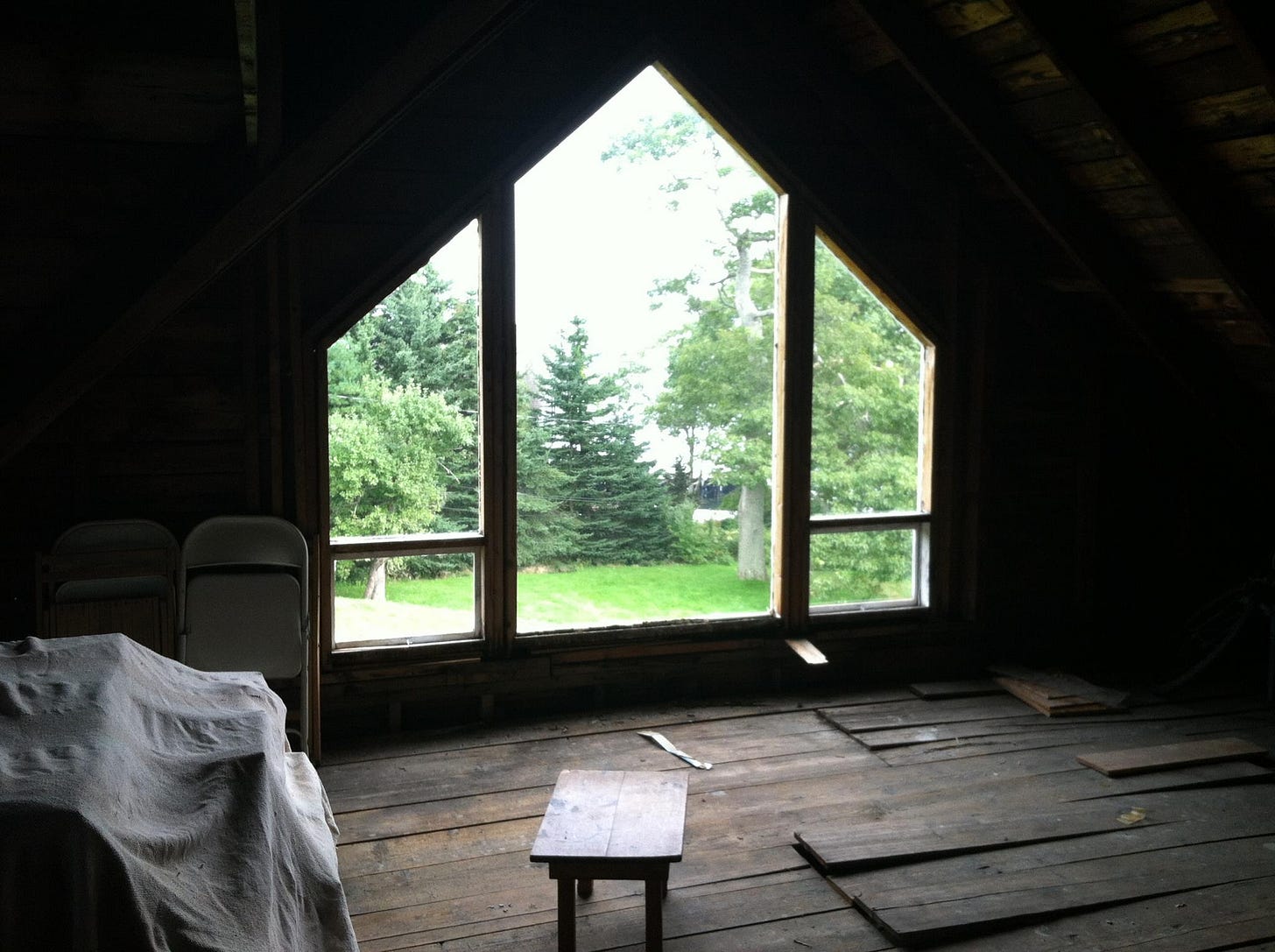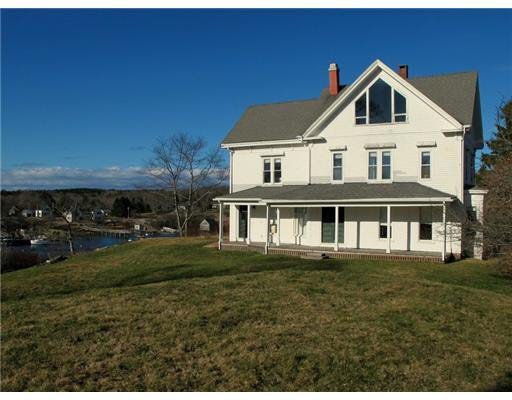Scheherazade – IV — The Westgate House
Old Maine farmhouses get their names from prior owners and prior generations, and the homes themselves are inextricably wound up in their previous owner’s identity.
My mother’s home stubbornly remained the Macomber Place in local hearts and minds even though she owned it for thirty years. We were constantly hearing about the destruction of the Macomber’s barn or the beauty parlor run out of the back room or this-that-and-the-other-thing regarding the Macomber family that once lived there.
There’s a delayed symmetry to these things, and it’s not out of the question that another generation from now the old farmhouse will become the Westgate Place, and the new owners will hear about my mother from elderly neighbors shuffling out of their houses in slippers carrying dog-eared folders of newspaper clippings and photos about our family. They’ll flip through the photographs of my mother standing way out on the scary, far-end ledge of the razed barn’s exposed rock foundation. She’ll be flashing the easy daring of a thirteen-year-old girl, looking across the expanse of her property at the harbor below.
The photos will show a woman in her mid-fifties with her big round glasses, holding one of her University of Chicago mugs of tea, smiling her tight, tooth-hiding photograph smile, wearing loose jeans and baggy sweaters to cover her too-skinny frame, her health already a deep concern for friends and coworkers even then, a decade in advance.
The neighborhood historians in the kitchen doorway will do their best fumbling with their manila envelope clippings and scattered half-memories to capture the old owner for them. The new owners will look with strained, nodding attentiveness at the elderly neighbor and try to think of something appropriate to say while keeping the dog from jumping all over their visitor and shushing the children who wanted to be at the beach an hour ago and wondering whether they’re supposed to want to keep the photograph or hand it back or what.
*
No.
They’re supposed to realize that they’re in this woman’s home, and it will always be her home no matter who owns it, and the deck they built out on one side of the house killed the cluster of day lilies she planted there. Those were her favorite flowers, and they shouldn’t have done that for a bunch of deck chairs and a grill. And they’re supposed to listen when they’re told she tried painting the house herself one side and summer at a time. She didn’t have two pennies to rub together, and then the kids went and sold it.
And there was that one time you could hear her laughing all the way over at the Gilbert place with that big loud laugh of hers. You should have heard her, and everyone at the barbecue looked up, and it made them all laugh too, and they’ll never forget that. Oh, she was loud.
They’re supposed to understand she always had a million friends coming and going. She must have scheduled them like clockwork months in advance, and they wound through here on trips to Damariscotta and the Point and the Fort and out to Monhegan, and there was a quartet of classical musicians who’d come to stay at the place every summer and play their music right out on the big front lawn, and the people coming up from the Hardy Boat rides headed to the parking lot would stop right out on the road, stand right there by the monument, and listen for a minute.
They’re supposed to understand that the woman who owned this house drove out here on her own every year from California in a car you wouldn’t be seen in driving up to Reilly’s grocery store, and then she drove all the way back to Oakland so she could spend a single month here and look out her big cathedral attic windows towards Monhegan. No husband either.
And when everyone else gets old they winter in Florida, but she talked about moving up here year-round, the opposite, in a house with no insulation. She was a crazy old lady, a teacher, and she was going to wait out the winters so she could see her grandchildren play on her lawn in the summer and, and, and – the old neighbors trailing off into their private thoughts about the woman who missed out on getting to watch her children’s children, and who might have for maybe a few years, anyway, and these new people will never, ever, ever love this place as much as she did no matter how much they sink into it.
What they’re saying, polite but New England indirect, is that this is the Westgate Place, and if you understand what you were supposed to understand you would know that no, of course you’re not supposed to keep the photo.





The house looks so lonely in that photo. Did it become lonely?